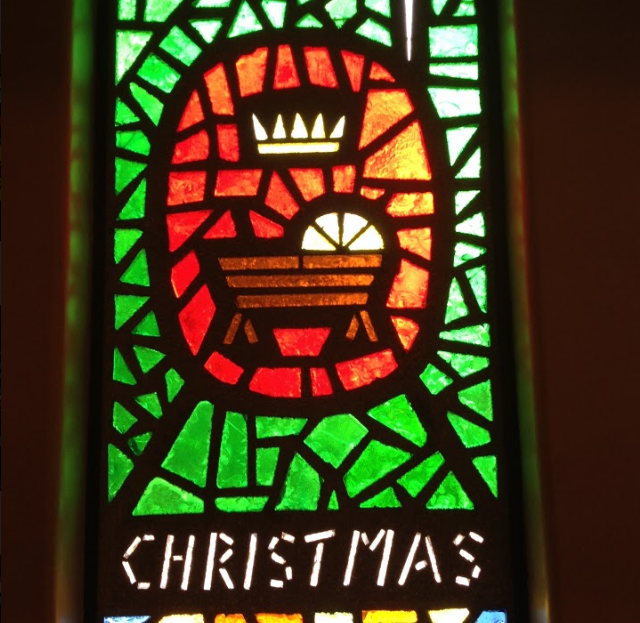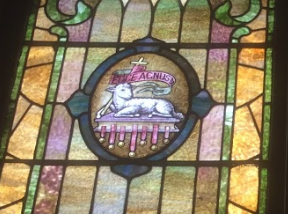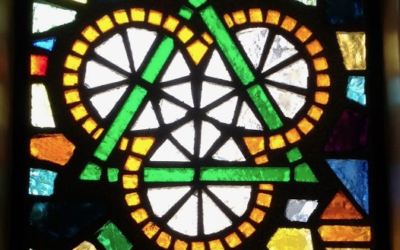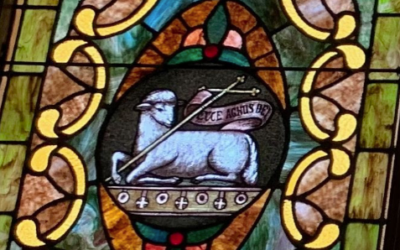Christmas Day – The Word Became Flesh
Friday, December 25, 2020
Watch the service

Read the sermon
How Greatly God Must Love You
Theology requires thinking. Many years ago, when I was at our seminary, our professor asked us a question. He asked how it was that Jesus, who was true God could then not know the day that he would return and judge the world. I remember thinking to myself that the reason Jesus didn’t know when he would return and judge the world was because he was limited by his human mind. It made sense. The professor responded by telling me that there was an ancient heretic in the Christian church that taught what I just said and was excommunicated because of it. Nestorius taught what we call the “two board theory.” You have the God-part of Jesus over here. You have the man-part of Jesus over here. And these two parts take turns. That was what Nestorius taught. The truth, though, is that Jesus is one person. And his two natures interact, share, and communicate with each other. If you want an every day example, just look at each of us as body and soul. When someone gets cancer and is looking both at pain and death, what happens to the body affects the soul. And, on the other side, when a woman is married to her husband for 70 years and then is widowed, the pain and loss in her soul affects her body. It’s like that with Jesus. His divine nature interacts with, shares with, communicates with his human nature. That day was a hard day to walk through in class. It was a day that I realized that theology—the study of who God is—was going to require thinking. All of this I mention because as we begin the Gospel according to John, we see that John throws us in the deep end right away. He gives us deep, rich, pensive theology to think through. In the opening words, we read, “1 In the beginning was the Word, and the Word was with God, and the Word was God. 2 He was with God in the beginning. 3 Through him all things were made; without him nothing was made that has been made.” (John 1:1–3 NIV11-GKE)
John tells us that in the beginning there was this word. And you’ll notice that this isn’t an ordinary word. In our english versions, you’ll notice they capitalize the “w”. This is no ordinary word. This word existed from eternity face to face with God.1 And at the same time, this word was God.2 How can something exist face to face with God and at the same time be God? Here we have a description of what we call the Trinity. But this word isn’t only face to face with God and at the same time God. He also made the universe. So John gives us two massive theological facts to ponder: First, God is entirely apart from us. And there are things about God we will never fully know or grasp. Second, he is more powerful than us. And that drives us to ask a question: Why would a God like that, who stands apart from us and is so much more powerful than us care for us? Notice then how John answers this question: “In him was life, and that life was the light of all mankind.” (John 1:4 NIV11-GKE)
John simply and shortly establishes the fact: This divine word does care for you. And John proves this with a picture. This word is the light for all people.3 This divine word cares for his creation. It’s true. But even better, it’s also transmitted. God sends someone to share this truth: “5 The light shines in the darkness, and the darkness has not overcome it. 6 There was a man sent from God whose name was John. 7 He came as a witness to testify concerning that light, so that through him all might believe. 8 He himself was not the light; he came only as a witness to the light.” (John 1:5–8 NIV11-GKE)
This divine word cares for the people he created. He shows this by sending John the Baptizer. And John boldly said, “This Jesus is the light of the world.” And then, what happens when John preaches this message? “9 The true light that gives light to everyone was coming into the world. 10 He was in the world, and though the world was made through him, the world did not recognize him. 11 He came to that which was his own, but his own did not receive him. 12 Yet to all who did receive him, to those who believed in his name, he gave the right to become children of God— 13 children born not of natural descent, nor of human decision or a husband’s will, but born of God.” (John 1:9–13 NIV11-GKE)
The light shines in the darkness. But what is the response from the darkness? The darkness does not grasp it. It does not understand who Jesus is. And what it does understand, it hates. The light comes to his own. But his own hate him. Just think of what happens when Jesus grows up. He preaches his first sermon in his home town. And at the end of it, not only do they throw him out of the synagogue, they also try to throw him off of a cliff.4 But John does not just write these word for Jesus’ own at his time. He also writes these words for us. There is such a thing as justified anger. But there are times when we are angry without reason and without cause. When we pray, asking for some change in our desperate lives. And God does not answer. We get angry. Someone sins against us. And even if they repent, there still is that anger in our hearts. And when we consider this it leads us to ponder this question: Does God care for us? He is different than us and distant from us. And even worse, we may not have thrown Jesus off of a cliff. But in our own hearts, we have been angry enough to want that in our hearts. How could a God like he is care for us? John answers that in this final verse: “The Word became flesh and made his dwelling among us. We have seen his glory, the glory of the one and only Son, who came from the Father, full of grace and truth.” (John 1:14 NIV11-GKE)
When we ask the question, “how do we know that God cares,” John answers by telling showing us how greatly God loves us. He loves us so much that he became one of us. He loved us so much that he dwelt with us. Our hymn this morning gets to that fact:
|
He whom the sea
|
Dear Christian friend,
|
How greatly God must love you! It is true that God is so much different than us. But he can be no closer to who we are and where we are than to be one of us. It is true that our anger at God has been just as real as his own people who tried to throw him off of a cliff. But that’s why Jesus came—to pay for our sins with a body to live for us and die for us. How greatly God must love you.
And when there are times that what you see in front of your face seems to teach you the opposite, return to this part of God’s word. You pray for change—needed change in your heart and life and it seems as if your words fall on deaf ears. But, my friends, the divine word hears your words. You can trust this fact because the divine word took on flesh and became one of us. When you look back over the last year and see a pile of frustrating failures behind you—so much you wanted to change and didn’t. How could God love me after I failed him like that? Look here to this manger. How greatly God must love you.
Theology requires thinking. It is important to know that our God is different than us and in many ways distant from us. Think about this. Ponder it. But don’t stop there. Also think about this child in the manger. For there you also find proof of another amazing truth. The God who is different than you and distant from you so greatly loves you. Amen.
1 “ⲡⲣⲟⲥⲧⲟⲛⲑ̅ⲛ̅·” (John 1:1 GNT-ALEX)
2 “ⲕⲁⲓⲑ̅ⲥ̅ⲏⲛⲟⲗⲟⲅⲟⲥ” (John 1:1 GNT-ALEX)
3 “ⲟⲫⲱⲥⲧⲱⲛⲁⲛⲱ̅ⲛ” (John 1:4 GNT-ALEX)
4 Cf. Luke 4:29



